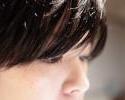Parents of children with obsessive-compulsive disorder (OCD) may sometimes wonder if other families dealing with OCD struggle with the same issues they are.
A large research study published almost a year ago in the Journal of the American Academy of Child and Adolescent Psychiatry may give these parents some answers.
Pediatric OCD Challenges
The study showed that everyone in OCD affected families experience elevated levels of anxiety and stress, and revealed the primary challenges faced by children with OCD, and immediate family members:
- Morning and evening routines - such as getting ready for work and school, or preparing for bedtime - were frequently disrupted, often because of intrusive thoughts.
- The children experienced significant academic and social problems that their parents were often unaware of.
- Nearly half the mothers, and one third of the fathers reported their child’s OCD had a substantial negative effect on their performance at work.
- Generally, impairment of family functioning was greater from the mother’s perspective, than from the father’s.
- Besides the anxiety and stress experienced by all family members, frustration and anger were often reported by children, and sadness was commonly felt by the parents.
- Severity of compulsions, having contamination or religious obsessions, and co-occurring diagnoses were factors that frequently impacted family functioning.
Though researchers discovered that the type and severity of compulsions were good indicators for family disruption, accommodation turned out to be the primary predictor.
The Primary Predictor
Accommodation, or allowing children with OCD to avoid triggers, and persist in compulsive behaviors was correlated with increased problems for the child, and other family members. Parents who encouraged children to face their fears, tolerate uncomfortable feelings, and challenge compulsive behaviors fared better.
While overall study outcomes point to the need for treating all family members affected by pediatric OCD, the issue of accommodation should encourage clinicians to focus on teaching parents strategies they can use to help their children manage symptoms.
Source: Brain & Behavior Research Foundation; JAACAP






